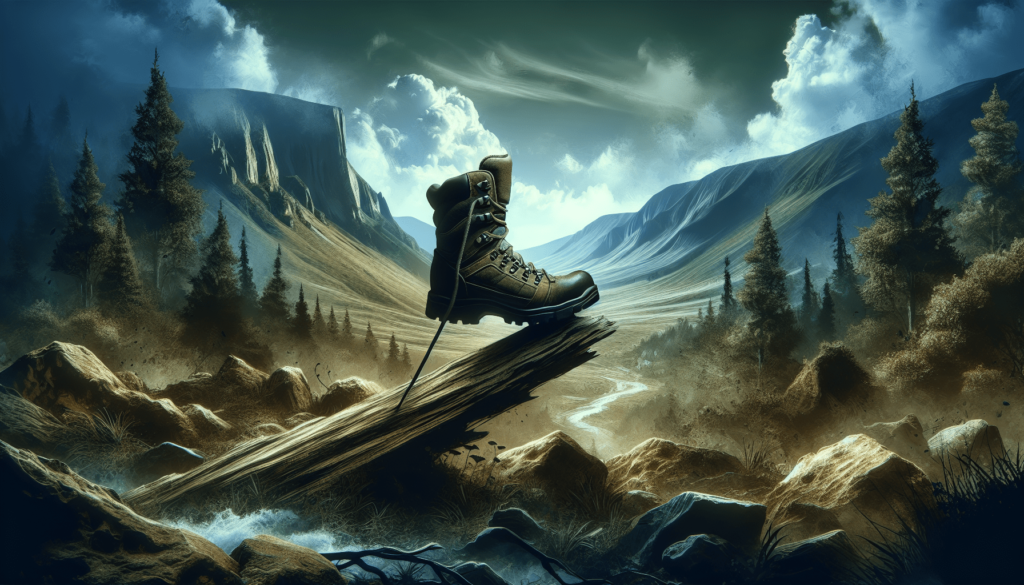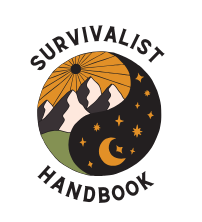Are you someone who loves the thrill of the great outdoors but faces challenges due to a disability? Whether it’s a physical limitation or a sensory impairment, don’t let it stop you from experiencing the wonders of nature. In my blog, “The Survivalist Handbook,” I understand the importance of inclusivity and have dedicated a section to “Survive with Disabilities: Adaptive Wilderness Survival Techniques.” Here, you’ll find a wealth of knowledge and techniques tailored specifically for individuals with disabilities. From adaptive gear to specialized techniques, I’m here to help you overcome any obstacles and confidently navigate the wilderness. It’s time to embark on your next adventure and show the world that disabilities are never limitations!

Preparing for the Wilderness
Preparing for a wilderness adventure is crucial for a safe and enjoyable experience. Before heading out, it’s essential to assess your abilities and limitations. Consider your physical, mental, and emotional fitness to determine what challenges you may face and how to best overcome them. Researching the terrain is also important. Familiarize yourself with the landscape, climate, and potential hazards of the area you’ll be exploring. Lastly, creating a personalized survival kit tailored to your specific needs will ensure you have the necessary tools and resources to handle any situation that arises.
Shelter Building
Choosing an appropriate shelter design is key to protecting yourself from the elements. Consider your specific needs when selecting a shelter, such as the level of insulation required and accessibility features. It’s important to modify shelter techniques for disabilities. For example, if you have limited mobility, opting for a shelter with easy entry and exit points or utilizing adaptive tools and equipment like lightweight collapsible poles can make the process easier. Prioritize safety and comfort when building your shelter.
Fire Starting
Understanding different fire starting methods is essential for survival in the wilderness. Be familiar with techniques such as friction, flint and steel, and fire starters. Adapt these fire starting techniques for disabilities by using assistive devices and tools such as one-handed fire starters or fire striker attachments for prosthetic limbs. These adaptations can make fire starting more accessible and manageable.
Finding Food and Water
When it comes to finding food and water in the wilderness, it’s important to familiarize yourself with identifying edible plants and insects. Learning about local vegetation and the edible parts of plants can provide a valuable food source. Adapt hunting and fishing techniques for disabilities by using adaptive tools such as telescopic fishing rods or assistive devices for aiming and shooting. Additionally, purifying water with adaptive methods, such as portable water filters or water purification tablets, ensures a safe and clean water supply.

Navigation and Signaling
Navigating in the wilderness is crucial for finding your way back to safety. Learn how to use compasses and maps effectively, even with disabilities. Adapt navigation techniques for limited mobility by utilizing mobility aids or navigation apps that provide step-by-step instructions. In emergency situations, light and sound signals can be valuable for signaling for help. Carry signal mirrors, whistles, or personal locator beacons to increase the chances of being spotted or heard.
Medical Preparedness
Medical preparedness is essential for wilderness survival, especially for individuals with disabilities. Remember to carry essential medications and medical supplies specific to your needs. Creating a personalized first aid kit that accommodates your medical conditions is crucial. Include items such as allergy medication, extra insulin, or specialized wound care supplies. Learn how to manage your medical conditions in the wilderness by staying hydrated, monitoring your levels, and taking necessary precautions.
Emergency Situations
Developing an emergency action plan is vital to ensure your safety in unexpected situations. Outline the steps you should take in various emergency scenarios, such as getting lost or encountering dangerous wildlife. Communicate distress signals effectively, even with disabilities, by using visual or auditory cues. In case you find yourself without the necessary tools or equipment, improvisation skills can come in handy. Learn how to use natural resources to create emergency tools or shelters.
Psychological Resilience
Building mental toughness and maintaining a positive mindset is crucial for wilderness survival. The unexpected challenges of the wilderness can be mentally taxing, so it’s important to develop coping strategies. Manage stress and anxiety by practicing deep breathing exercises or mindfulness techniques. Seek support from others, whether it’s through online communities or joining outdoor groups specifically designed for individuals with disabilities. Remember, you are not alone, and there are resources available to help you through challenging times.
Adaptive Camping and Outdoor Skills
Choosing accessible campsites is essential for an enjoyable camping experience. Look for campsites with paved paths, accessible restrooms, and designated accessible spaces. Additionally, adapting outdoor cooking techniques can make meal preparation more accessible. Utilize adaptive tools such as long-handled cooking utensils or portable cooking stations to ensure a smooth cooking experience. Explore adaptive outdoor activities such as adaptive kayaking, horseback riding, or nature photography to fully enjoy the wilderness.
Training and Practice
Participating in adaptive wilderness survival programs is an excellent way to develop and improve your skills. These programs are specifically designed for individuals with disabilities and provide hands-on experience and training. You can learn from experienced instructors and gain valuable knowledge to enhance your survival abilities. Additionally, consider participating in simulation exercises to practice your skills in a controlled environment. Continuously improving and learning is key to being well-prepared for any wilderness adventure.
In conclusion, surviving in the wilderness with disabilities requires careful planning, adaptation, and resourcefulness. Assess your abilities, research the terrain, and create a personalized survival kit. Learn shelter building, fire starting, finding food and water, navigation and signaling, medical preparedness, and emergency response techniques. Focus on building psychological resilience and seek support from others. Adapt your camping and outdoor skills to ensure an enjoyable experience, and continuously improve your abilities through training and practice. With the right knowledge, preparation, and adaptive techniques, you can thrive in the wilderness and embrace the beauty and challenges it presents.

